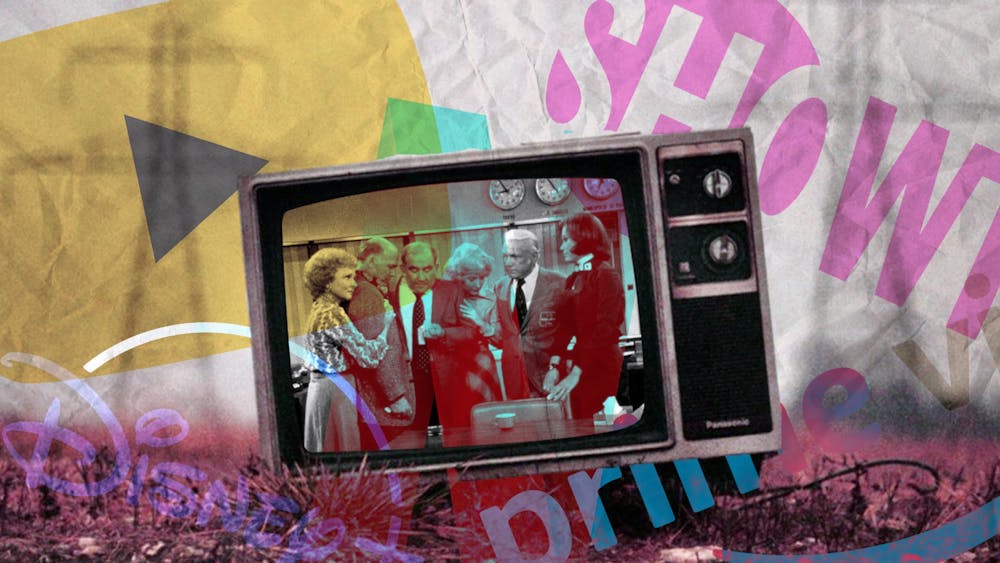When Mary Tyler Moore died in January of 2017, I was completely oblivious to the fact that the world had just lost a star, someone who had charmed American households over the CBS airwaves for decades. That's because I wasn’t aware of her groundbreaking, aptly–named television program, The Mary Tyler Moore Show. The show is a sitcom from the 1970s about a young woman, Mary Richards, who breaks off her engagement and moves to Minneapolis to start a career. She balances her time between the newsroom of a local television station, where she serendipitously lands a job as an associate producer, and her modest, but glamorous studio apartment.
Cloris Leachman died in January of 2021—almost exactly four years after Moore’s passing. At this point in my life, I’d turned to television history for a hobby, distraction, and comfort. I was specifically enamored with TMTMS, which I parceled out in individual episodes once a week, trying to savor the sharp writing and rich ensemble performances. Leachman herself was a dominant force on the show as wacky landlady Phyllis Lindstrom. She was the first member of that wildly talented and cohesive group of performers whose death I processed in real–time; Moore, Valerie Harper, and Georgia Engel had passed away in those few years prior, and Ted Knight, who dominated many episodes as nincompoop newscaster Ted Baxter, died of cancer in 1986, less than a decade after the show went off the air. Suddenly over half of the main cast was gone, and over the course of the year, the remaining TV legends of TMTMS—Gavin MacLeod, Ed Asner, and Betty White—all passed away. When taking into consideration the further losses of producer Allan Burns and director Jay Sandrich that year, it's apparent that one of the great television legacies has suddenly grown very faint.
One might wonder whether this sense of loss is representative of the erosion of other long–standing, seemingly crucial aspects of comedy television. One of the things that made The Mary Tyler Moore Show so superlative was its full embrace of the found family trope—a common sitcom element, in which the protagonist grows close to their friends and coworkers, developing a familial bond. The found family trope was at the heart of everything on TMTMS, from the theme song, which emphasized that “Love Is All Around,” to characters like Lou Grant or Rhoda Morgenstern, who served as surrogate father and sister, respectively, to Mary. With the longer seasons that were traditional during the show’s airtime, the viewer too was invited to join the family each week.
The found family trope is a part of a larger theme in comedy history; that is, the role of comedy as comfort to the viewer. Broadcast comedy dates back to the radio shows of WWII, when a listener or viewer could turn to another world for refuge from both the issues of their daily lives and the larger problems that face the world. One would think our current era of disease and political chaos would predispose the country to appreciate the escape these programs can provide.
However, the role of comedy in people’s lives today barely resembles the weekly reunions of television viewers with must–see sitcoms. The dominance of streaming services and the internet have led to dramatic shifts in the nature of people's media consumption. We watch our late–night talk shows on YouTube the next day—that is, if our favorite host isn't moving away from weekly broadcasts entirely. For the first time in fifty years, NBC had no comedies in its entire 2021-22 television lineup. Active rejection of the broadcast model and certain sitcom staples, like the laugh track and multi–camera format, permeates our culture. The biggest loss, however, might be the lack of regularity that has come with the takeover of streaming services.
Having moved beyond the exhausting 39–week television comedy schedule of the 1950s is probably a good thing for television casts and crews. But there’s a big difference in how we experience television when we can binge 10–episode seasons in a day, and when these seasons are stretched years apart by involved production schedules. The fact of the matter is that the reliability and dependability of television, which served as a unique comfort and support system for generations, is now gone.
So, let’s mourn it. Not just the cast and crew of The Mary Tyler Moore Show, but the entire era, where you could peek into the apartments of Lucy, Mary, or Jerry, or take a load off after a long day of work with a glance into a newsroom, a radio station, or a paper company. Where, if you needed a friend, you could choose a vicarious sidekick, like Ethel Mertz, or grab a stool in a bar where everybody knows your name.
Let’s pour one out for the great age of American television comedy. She was slain by streaming services in the late 2010s, and is resting peacefully in a media graveyard with hundreds of Blockbuster Video stores and eight–track tapes.
Or is she?
NPR says to hold your horses—television comedy is back. There may not be anything quite as robust as CBS’s 1970s Saturday night lineup, but new shows like Abbott Elementary and American Auto are bringing back the network sitcom of decades past. We'll probably never recreate the specific environment and unique theatrical qualities of the sitcoms that our parents grew up watching, but that’s alright—there’s a new generation coming up in the ranks with exciting ideas that can rejuvenate this long–standing entertainment tradition.
So instead, let’s just mourn the first great age of American television comedy. And get very excited for the second.

